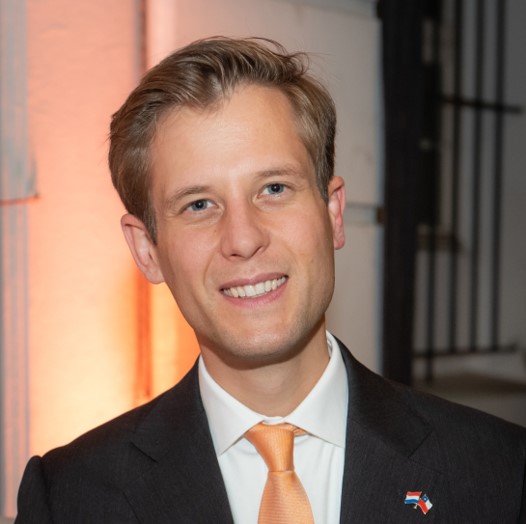Ports and Logistics - Chile EN
Never before has the challenge to bring human activity into harmony with the oceans and aquatic ecosystems been greater, for the need is urgent due to an ever-increasing level of carbon emissions, climate change, pollution, and overfishing. Therefore, untapping the oceans’ full potential cannot be done without simultaneously preserving their health. It’s an action that we must take, urgently and collectively, to leave a profound legacy for our present and future generations.
As a densely populated low-lying country, the Netherlands has learned to deal with the forces of the oceans for centuries, enabling us to build what is today known as the world’s best protected delta. Owing much of its prosperity to the oceans, the Netherlands calls for an international partnership to change the course towards a sustainable blue economy, unlocking the full potential of healthy and productive oceans and seas.
The Dutch contribution to solutions
The Netherlands is eager to share its knowledge and expertise to initiate, amplify and accelerate actions which reduce pressure on the oceans. While adhering to the United Nations’ Sustainable Development Goals (SDGs), the Dutch maritime sector can support you by:
- developing smart and zero-emission shipping
- creating green, vibrant and connected port cities
- acting as a green gateway to Europe
- advancing the sustainable blue economy with clean and productive oceans The journey towards the sustainable blue economy demands gamechangers. Let’s join together and shape the maritime future now!
The Netherlands is proud of its excellent maritime knowledge centres and highly skilled workforce, dedicated to creating long-term solutions and products that meet the highest quality and safety standards. The Dutch maritime sector consists of world-class knowledge institutes, training centres, engineering companies, shipbuilding industries, vibrant ports and related services all at a proximity to one another of just 200 km.
Together they collaborate to find solutions to very complex challenges by:
- constructing multi-use offshore energy parks,
- designing specialized working vessels and state-of-the-art superyachts,
- implementing smart maintenance of ships,
- creating bespoke concepts for vibrant ports and delta regions,
- applying cutting-edge naval technology, and
- managing complex heavy lifting and transport operations at sea.
With one third of the country below the sea level, the Netherlands has learnt to apply nature-based solutions to coastal protection structures and port infrastructure designs. All this knowledge and expertise has earned the Dutch maritime experts a prominent global presence. Dutch experts have a collaborative, hands-on approach to find the safest and most optimal solution together with multiple stakeholders and with a strong commitment to delivering on time.
Challenges for Chile and the Netherlands in the field of ports & logistics
Future economic growth in Chile, as well as in the Netherlands, is deeply tied to smart logistics and sustainable port development. This is due to the experience of both countries in international trade, ocean shipping, port development and efficient organization of their logistic chains.
The aim of the Dutch-Chilean cooperation on ports & logistics
In April 2024, a Memorandum of Understanding between the Ministry of Transport and Telecommunications in Chile and the Ministry of Infrastructure and Water Management of the Netherlands has been extended for another 2 years. This marks a next step in a series of formalized collaborations between our two countries that dates back to as early as 2015. The aim of this MoU is to improve efficiency in the logistic chains, and work together on hydrogen technology in ports, through cross-border public-private partnerships, including the Chilean Foundation for Logistics Efficiency "Conecta Logistica".
Another multi-year program, which started in July 2022, is the Partners in Business (PIB) agreement signed between the Dutch government and a cluster of Dutch companies. The objective of this public-private partnership "Green energy corridor Chile and the Netherlands" is to provide and promote Dutch technology, expertise, products and services to support Chilean port developmemnt in the context of Chile's emergent hydrogen economy. Chile has the ambition to become one of the world's largest end cheapest renewable hydrogen producers by 2035.
Sustainability shapes the cooperation between Chile and the Netherlands
The cluster members of the PIB commit to Responsible Business Conduct agreements aimed at mitigating risks and creating a positive impact on Sustainable Development Goals (SDGs in particular):
- SDG 7/ Ensure access to affordable, reliable, sustainable and modern management for all
- SDG 8/ Promote sustained, inclusive and sustainable economic growth, full and productive employment and decent work for all
- SDG 9/ Build resilient infrastructure, promote inclusive and sustainable industrialization and foster
- SDG 13/ Take urgent action to combat climate change and its impacts
The areas in which the Netherlands and Chile work together
In the framework of the recently signed MoU and PIB, Chile and the Netherlands have agreed to focus primarily on solutions for ports & logistics cooperation in the following fields:
- Sustainable freight transport and smart logistics;
- Integral development of logistic chains;
- Coordination and facilitation of processes through digital transformation of the maritime sector, including the application of quality data management in logistics, for improving public and private decision-making processes;
- Stimulating research, development and applied sciences in logistics;
- Enhancing knowledge by participatory processes and co-creation; and
- Other areas linked to logistics and port sectors, decided upon by both Participants, in conformity with their competences.


